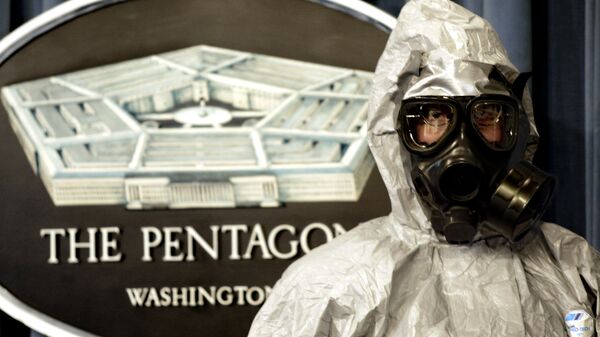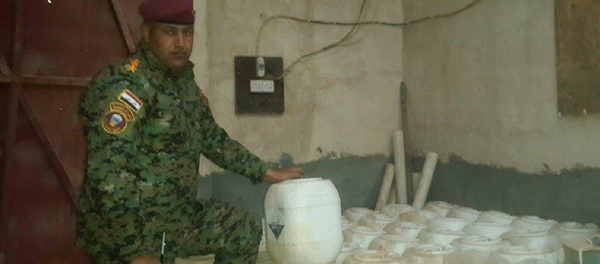"The level of confusion in the US intelligence community is extremely high," Kwiatkowski said on Thursday. "The political product from the US intelligence community seems incomplete and inaccurate, and likely not the result of an honest consensus among the intelligence agencies."
The White House has accused Syrian President Bashar Assad of being responsible for the April 4 chemical attack in the village of Khan Shaykun in Idlib province because it alleges that no one else could have done it.
However, Kwiatkowski dismissed this reasoning as superficial and false.
"The White House is clearly wrong with ‘no one else could have done it.’ While it is not completely clear what type of chemical exploded in Idlib last week, we have known about Islamic State and rebel group possession of chemical agents and production of them for several years," she pointed out.
Daesh and other forces in the region certainly have the capabilities and resources to mount limited chemical weapons attacks such as the one carried out in Khan Shaykhun, Kwiatkowski observed.
"They, as well as other state players or intelligence operations of various states are also capable of ensuring a chemical release pretty much anywhere in the region," she said.
President Donald Trump and his advisers were misguided in imagining that Assad could have had any motive to use chemical weapons at a time when his army and air force had established a clear ascendancy over Daesh forces and were rolling them back without need to use such weapons, Kwiatkowski pointed out.
"To suggest that Assad had a motive to use a chemical weapon against civilians at this stage of the win is beyond comprehension, and that logic alone should lead to a broad investigation of cui bono, and how it happened," she remarked.
The US government remains handicapped because it does not have a consistent Syria or Iraqi policy, nor does it have a consistent Daesh policy, Kwiatkowski explained.
Daesh could have received chemical weapons from several sources, Kwiatkowski also said.
"We know or suspect that various parts of the Islamic State are resourced by Saudi Arabia, Yemen, Qatar, Turkey, Kuwait, Israel and the United States. We know that the Islamic State had been selling Iraqi oil on a black market, and this activity could have included funds to buy chemical weapons and their precursors," she noted.
The use of chemical weapons by Daesh could now be blamed on Iraqi forces or on Assad’s forces, Kwiatkowski concluded.




